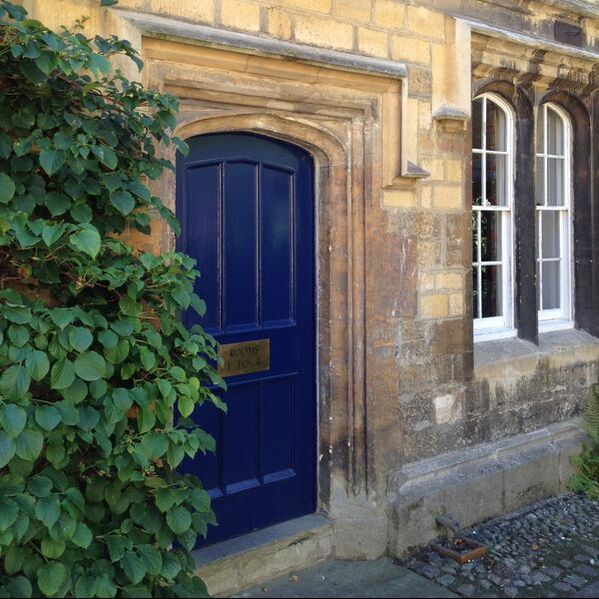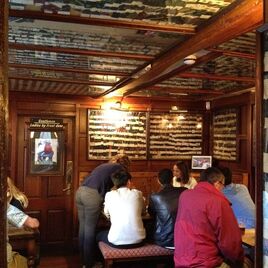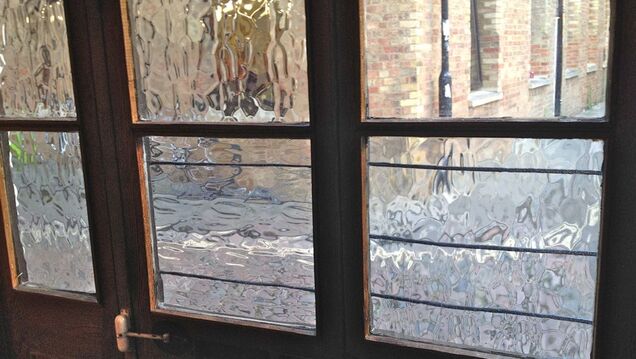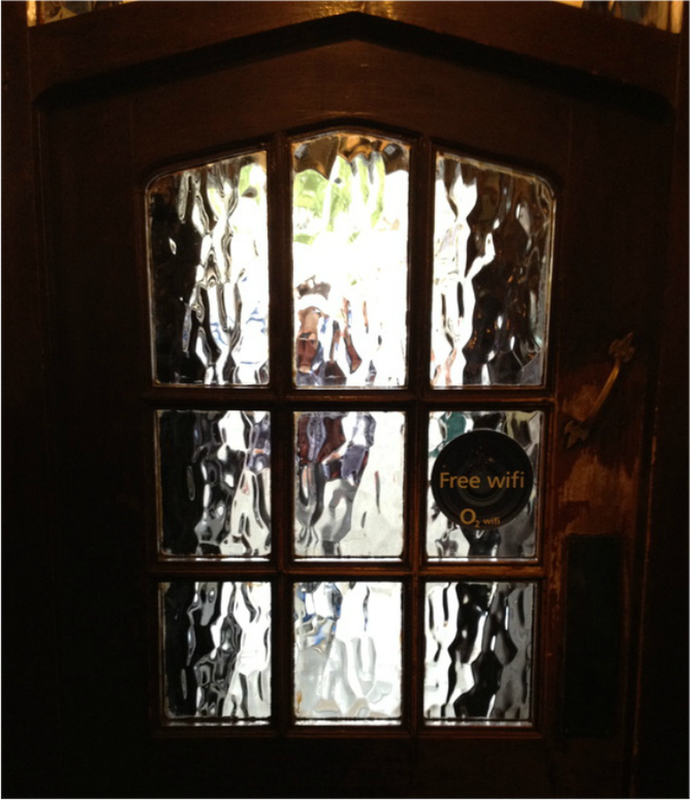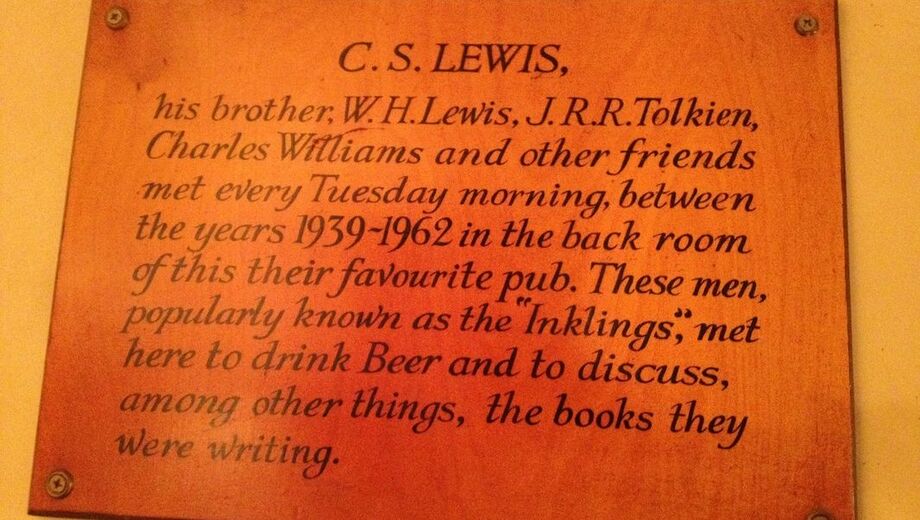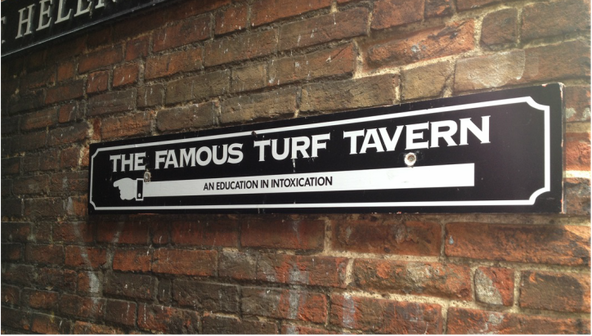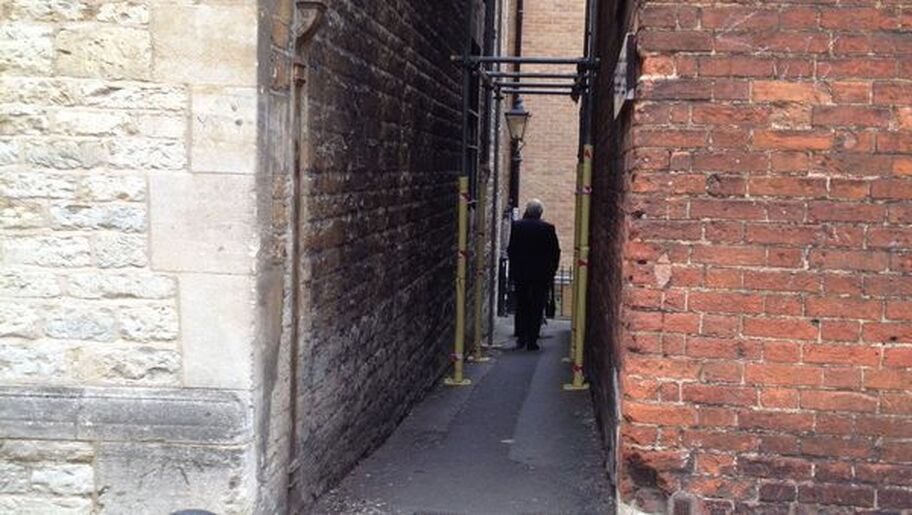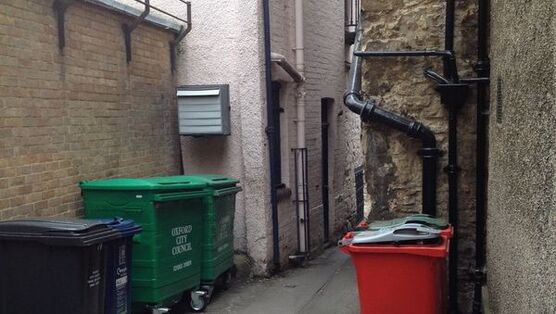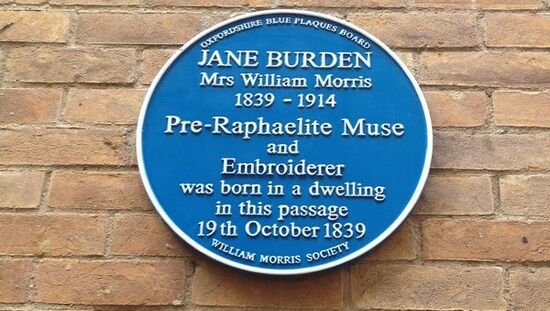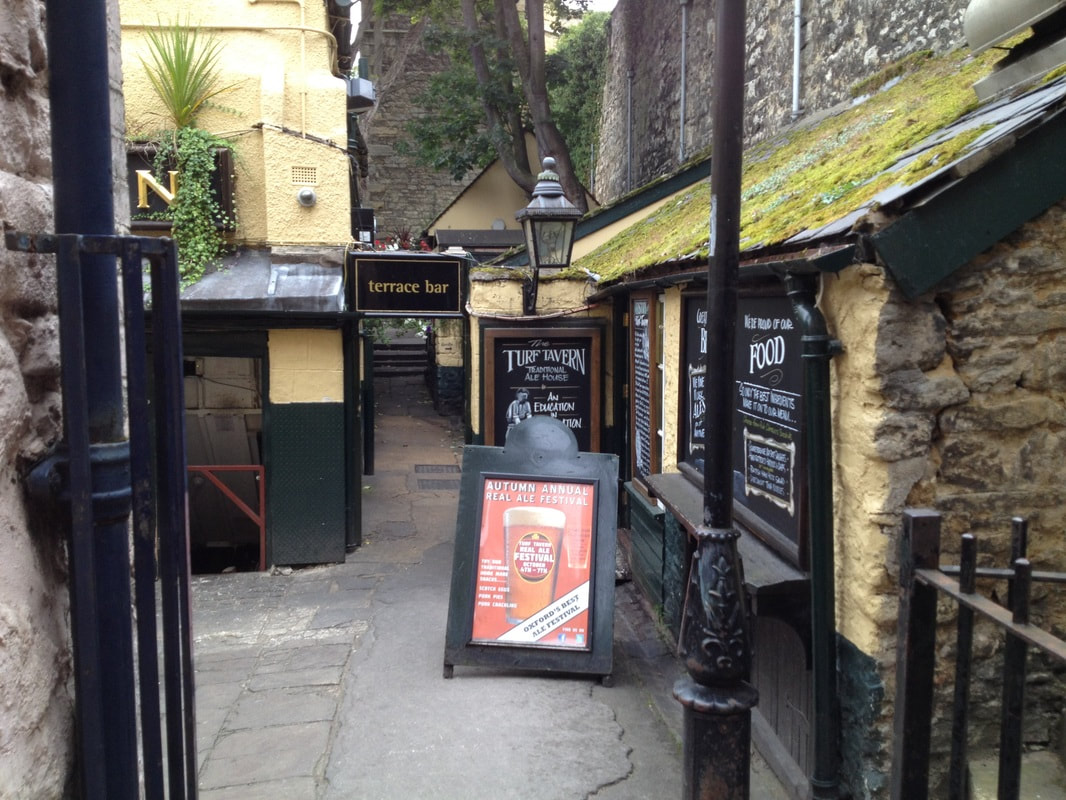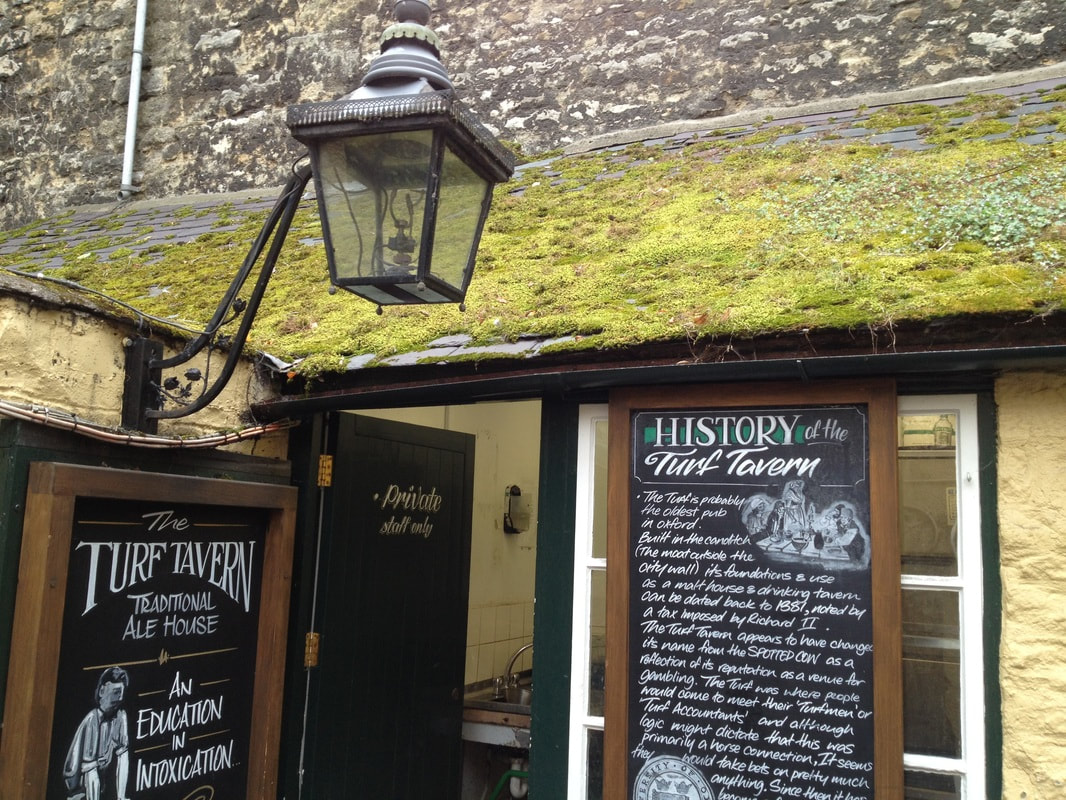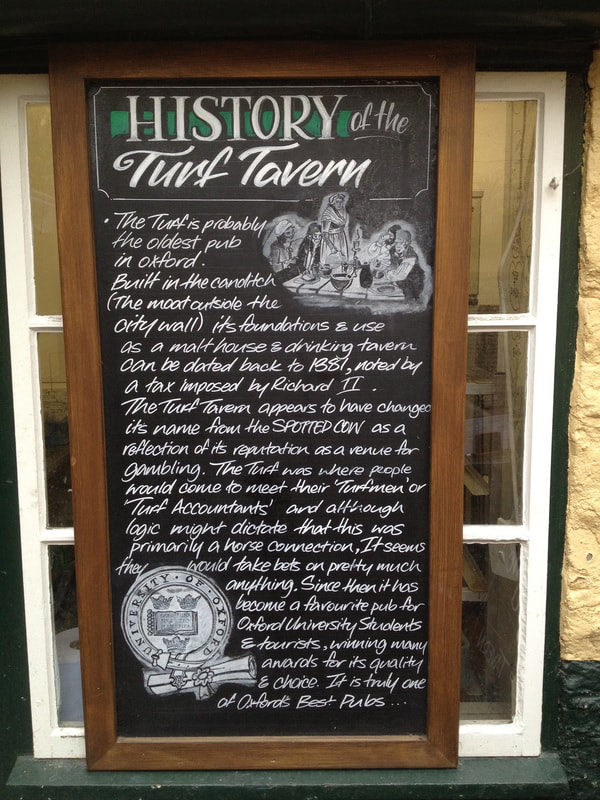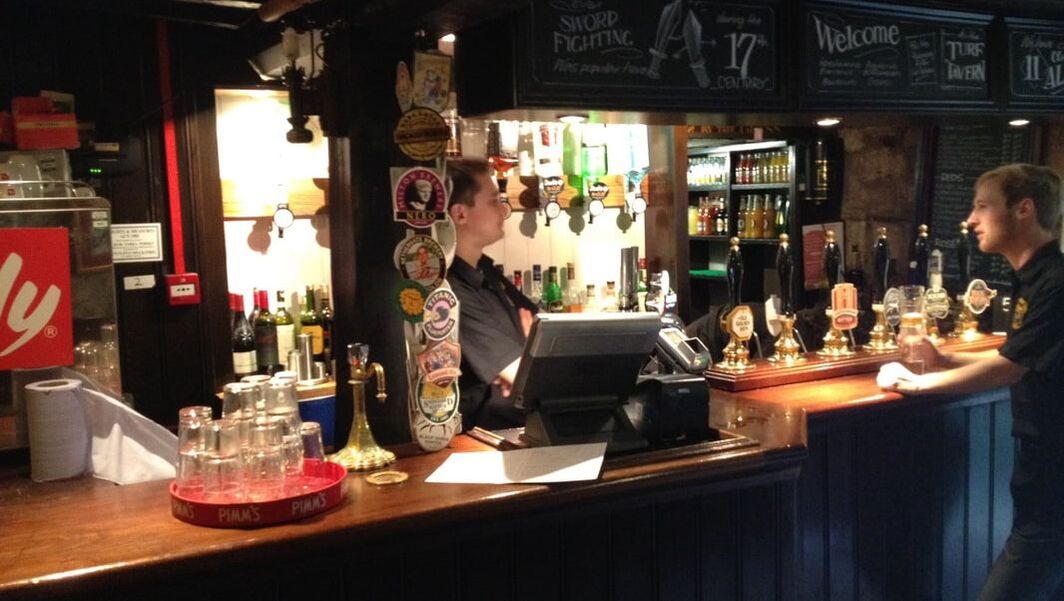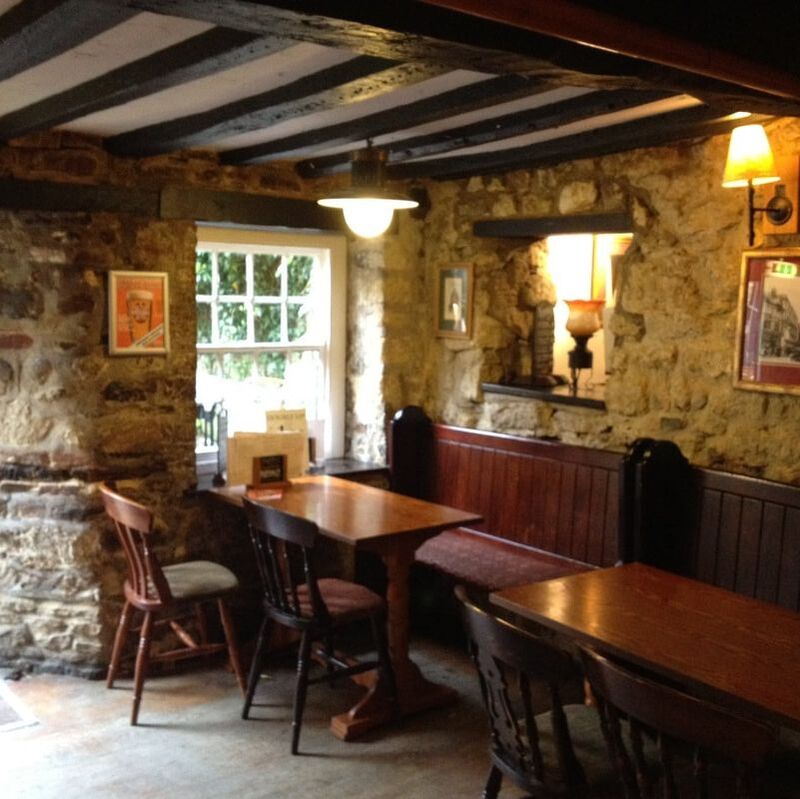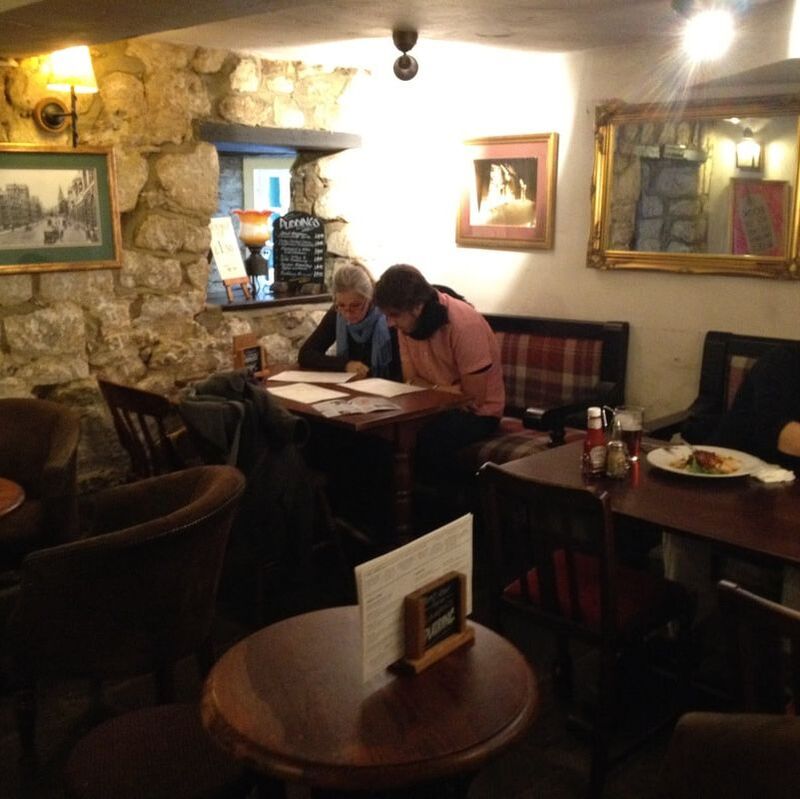Oxford is super easy to get to from the airport or London. We chose a bus trip straight from the airport. It took about 90 minutes.The bus was plush and comfortable and we nodded pleasantly off after being up all night on the plane. The driver figured out exactly where we needed to get off, and kindly made sure we didn't miss the stop. A true gentleman, he was.
Of course, Oxford is a college town. It just happens to be eons old and steeped in cool history and architecture and pubs and shopping and tea shops and little lanes and passageways. Which takes it up to the level of sublime. Super sublime.
Oxford actually has its own color: "Oxford Blue"
We watched the guy paint this door and asked him how he got it so shiny. He explained his process, which has way more steps than we use when we paint our doors. The key, it seems, is to lightly sand the paint between coats. And to add a tad of mineral spirits to the paint. And to use oil-based paint. None of which we do. Which probably explains why my front door looks nowhere near as awesome as this one.
Judging by the number of pubs, there's quite a bit of drinking going on in Oxford. We were happy to join in. Here are a few of our favorites.
The Bear Inn
As with many pubs, this pub is at the end of a passageway. The sign indicates that The Bear Inn and the Turf Tavern are having an argument about who is Oxford's oldest pub. I am not taking sides. The bar is small. The ceiling is low. People were shorter back then.
If you look closely at the walls and ceilings of the Bear Inn, you'll see cut-off pieces of neckties. Hundreds of neckties. Thousands maybe. Seriously. The pub owner offers tie-wearers a drink if they'll cut up their ties. Obviously this is something people feel honored to do. Obviously, I'm missing something here.
Circular staircase and old wavy windows. What more could you want from a pub?
If you look closely at the walls and ceilings of the Bear Inn, you'll see cut-off pieces of neckties. Hundreds of neckties. Thousands maybe. Seriously. The pub owner offers tie-wearers a drink if they'll cut up their ties. Obviously this is something people feel honored to do. Obviously, I'm missing something here.
Circular staircase and old wavy windows. What more could you want from a pub?
The Eagle & Child
After a bike trip to Blenheim Palace, we stop for a drink. The Eagle and Child is a famous pub, mostly because of who drank here: Famous writer people. Including J.R.R. Tolkien and C.S. Lewis. And now, another famous writer. That'd be me.
The glass in the front door, complete with its Ye Old Wifi sign, is thick and wavy and just plain cool. I bet Tolkien touched this door.
The glass in the front door, complete with its Ye Old Wifi sign, is thick and wavy and just plain cool. I bet Tolkien touched this door.
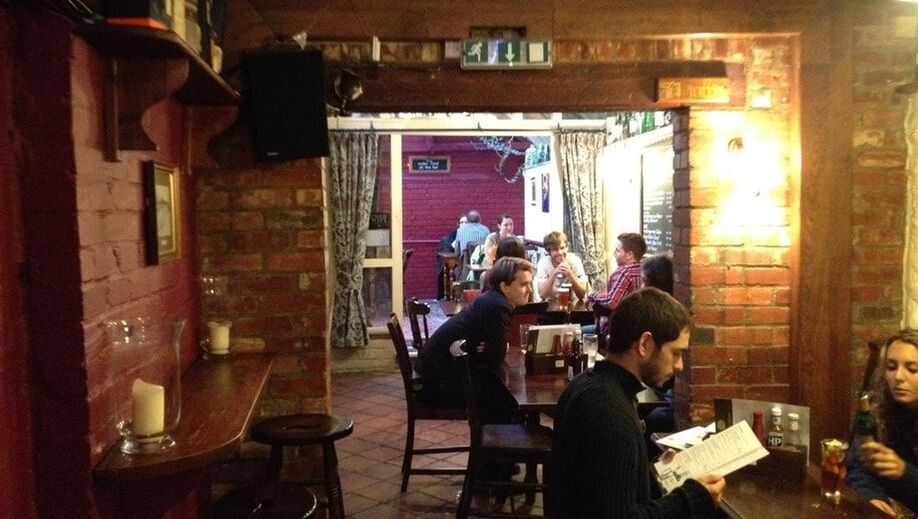
Lewis and Tolkien met in the back room to drink beer and discuss important topics. I presume they were important. The forefront of this photo is the old back room; that back part was added on. Now we can better picture the scribes leaning over their drinks (coffee? something stronger?) and scribbling furiously with their arm propped around their work so the other can't copy.
Turf Tavern
You could spend your entire trip just seeking out and trying all the pubs in Oxford. Though it was down long winding passageways that looked as though they lead absolutely nowhere interesting, the 17th century pub is worth the trouble to find. Their sign says they are "probably" Oxford's oldest pub.
Oxford Gargoyles & Grotesques
|
It's a bit eery walking around Oxford under the disapproving eyes of these haughty creatures. What the heck is a "grotesque" anyway? I had to look it up. It means a decorative work that combines incongruous human and animal figures with scrolls, leaves, etc. OK. Now we know.
You might care to know that the word gargoyle comes from our friends the French—from the word gargouille, which means throat. Why might you care to know this? Because then you'll understand what these guys do (the gargoyles, not the French). They have a purpose. Gargoyles channel water from the stonework or gutter of a building and spew it out through through their mouth (like gargling). Neat, huh? |






